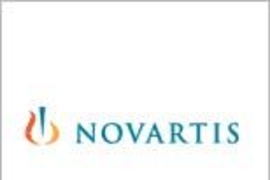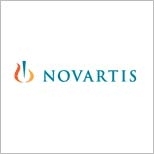Novartis and the Massachusetts Institute of Technology have launched a long-term research collaboration aimed at transforming the way pharmaceuticals are produced.
The 10-year partnership, known as the Novartis-MIT Center for Continuous Manufacturing, will work to develop new technologies that could replace the conventional batch-based system in the pharmaceuticals industry - which often includes many interruptions and work at separate sites - with continuous manufacturing processes from start to finish.
The Novartis-MIT Center for Continuous Manufacturing combines the industrial expertise of Novartis with MIT's leadership in scientific and technological innovation. Novartis will invest USD 65 million in research activities at MIT over the next 10 years.
"This partnership demonstrates our commitment to lead not only in discovering innovative treatments for patients but also in improving manufacturing processes, which are critical to ensuring a high-quality, efficient and reliable supply of medicines to patients. Our collaboration with MIT, a worldwide leader in developing cutting edge technologies, holds the promise to achieve a quantum leap in the production of pharmaceuticals, a field which has received rather little attention in the past," said Dr. Daniel Vasella, Chairman and CEO of Novartis.
Novartis and MIT expect the technologies created in this collaboration will benefit patients and healthcare providers through a positive impact on supply availability and the quality of medicines. These technologies will also seek to reduce the environmental impact of manufacturing activities.
"The Novartis-MIT Center for Continuous Manufacturing has the potential to revolutionize drug development and production," said Susan Hockfield, MIT President. "We are delighted to collaborate with Novartis to help improve the way that drugs are manufactured so that patients have quicker and more reliable access to the medications they need. The new educational opportunities that this program will provide for our students make this partnership even more exciting."
The pharmaceutical industry currently uses batch-based manufacturing that has been common for several years, even though other industries have moved to continuous manufacturing.
In this often time-consuming process, pharmaceutical active ingredients are synthesized in a chemical manufacturing plant. These ingredients are then shipped to a manufacturing facility, often at another site, where they are converted through defined processes into giant batches of pills, liquid or cream. With multiple interruptions, including transport to separate locations, each batch may take weeks to produce. In addition, manufacturing design and scale-up for a new drug are very costly and time-consuming.
Expected benefits of continuous manufacturing include accelerating the introduction of new drugs by designing production processes earlier; using smaller production facilities, with lower building and capital costs; minimizing waste, energy consumption and raw material use; monitoring quality assurance on a continuous basis instead of post-production batch-based testing; and enhancing process reliability and flexibility to respond to market needs.
The initial research of the Novartis-MIT Center for Continuous Manufacturing will be conducted primarily through Ph.D. programs at MIT laboratories, and then transferred to Novartis for further development to industrial-scale projects.
The partners expect the Center's work to involve seven to ten MIT faculty members, as well as students, postdoctoral fellows and staff scientists. Novartis will commit its manufacturing and R&D resources and will pilot new manufacturing processes with one of its pharmaceutical products.
About MIT
The Massachusetts Institute of Technology, a co-educational privately endowed research university, is dedicated to advancing knowledge and educating students in science, technology, and other areas of scholarship to serve the nation and world. The Institute has more than 900 faculty and 10,000 undergraduate and graduate students.
MIT's commitment to innovation has led to a host of scientific breakthroughs and technological advances. Achievements include the first chemical synthesis of penicillin and vitamin A, the development of inertial guidance systems, modern technologies for artificial limbs, and the magnetic core memory that led to the development of digital computers. Sixty-three alumni, faculty, researchers and staff have won the Nobel Prizes.
About Novartis
Novartis AG is a world leader in offering medicines to protect health, cure disease and improve well-being. Our goal is to discover, develop and successfully market innovative products to treat patients, ease suffering and enhance the quality of life. We are strengthening our medicine-based portfolio, which is focused on strategic growth platforms in innovation-driven pharmaceuticals, high-quality and low-cost generics, human vaccines and leading self-medication OTC brands. Novartis is the only company with leadership positions in these areas. In 2006, the Group's businesses achieved net sales of USD 37.0 billion and net income of USD 7.2 billion. Approximately USD 5.4 billion was invested in R&D. Headquartered in Basel, Switzerland, Novartis Group companies employ more than 100,000 associates and operate in over 140 countries around the world.
A version of this article appeared in MIT Tech Talk on October 3, 2007 (download PDF).







